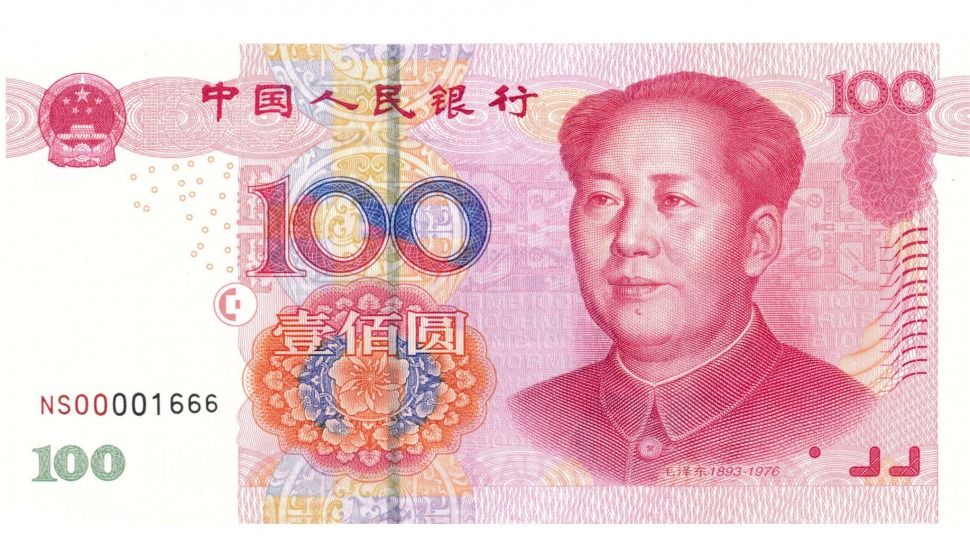Bit-Yuan? China creates its own digital currency
04/16/2021 / By Ramon Tomey

The concept of paper money originated in China thousands of years ago. Now, China is pioneering another concept related to money: Its own version of a digital currency. The so-called “digital yuan” aims to establish a monetary system independent of the U.S. dollar. However, this could also serve as another form of surveillance – given that the digital currency is regulated by the Chinese regime.
Traditional cryptocurrencies such as bitcoin have allowed a glimpse into the digital future of money. These digital forms of money have touted anonymity and freedom from regulations by central banks as their main selling points. But these digital versions of legal tender have limitations of their own. They exist outside the traditional global financial system and are not considered legal tender in most parts of the world.
The People’s Bank of China will be responsible for issuing and controlling the digital yuan. It is expected to give the regime new tools to aid surveillance of its economy and population. This is where the digital yuan differs from most cryptocurrencies – it negates user anonymity.
“In order to protect our currency sovereignty and legal currency status, we have to plan ahead,” Mu Changchun of the People’s Bank of China remarked. Mu is the director-general of the Chinese central bank’s Digital Currency Institute and is responsible for the digital yuan project. Mu added that the central bank will limit how it tracks individuals, which he called “controllable anonymity.”
Digitized money appears to be a macroeconomic dream for governments worldwide. It can be utilized to track people’s spending habits in real-time, deliver financial aid to disaster victims and stop funding for potential crimes. Elements of this kind of control already exist in China as digital payment systems such as Alipay and WeChat pay are becoming the norm.
Beijing resident Tao Wei called the digital currency app “pretty good” after she spent a test allotment. It did not take Tao a long time to pay for her two-year-old daughter’s portrait. She simply pointed her smartphone toward a scanner and the transaction was complete.
China is also positioning the digital yuan for international use without being tied to the global financial system. The current system makes use of the U.S. dollar as its reserve currency as a result of the Bretton Woods Agreement of 1944. Most countries in the world maintain fixed exchange rates between their currencies and the dollar as a result of this accord.
China’s foray into cryptocurrency appears to be a move to establish more centralized control
China is currently embracing digitization in many forms in order to achieve more centralized control – tightening paramount leader Xi Jinping’s authoritarian rule as a result. The communist country is also aiming for a head start on future technologies before other nations develop them.
The digital yuan comes in two forms: A mobile app for smartphones and a card version. China has indicated that the digital currency will circulate alongside bills and coins for some time – with bankers and other analysts projecting an eventual digitization effort for all of its money. (Related: China is literally destroying CASH now to fight the coronavirus… new government digital currency mandate coming?)
More than 100,000 people have downloaded the digital yuan’s app version during tests in recent months. Thanks to the app, they were able to spend government assistance on different merchants in the country.
The rise of the digital yuan has become a cause of concern for American economists.
Treasury Secretary Janet Yellen and Federal Reserve Chairman Jerome Powell have said that the possible effects of digitized national currencies – such as the yuan – are now being “studied in earnest.” They also remarked that the concept of a digital dollar in the future is also being considered. (Related: Bitcoin now being heavily manipulated by the communist China regime which can cause huge price swings at will.)
Meanwhile, former International Monetary Fund (IMF) Senior Adviser Josh Lipsky warned against the digital yuan. “Anything that threatens the dollar is a national security issue. This [digital yuan] threatens the dollar over the long term,” said Lipsky.
Visit Risk.news to read more articles about digital currencies such as the digital yuan.
Sources include:
Tagged Under: cashless transaction, central bank, China, cryptocurrency, digital currency, digital payment systems, digital yuan, economic policy, global financial system, payment platform, People's Bank of China, smartphone app
RECENT NEWS & ARTICLES
COPYRIGHT © 2017 MARKET CRASH NEWS

















